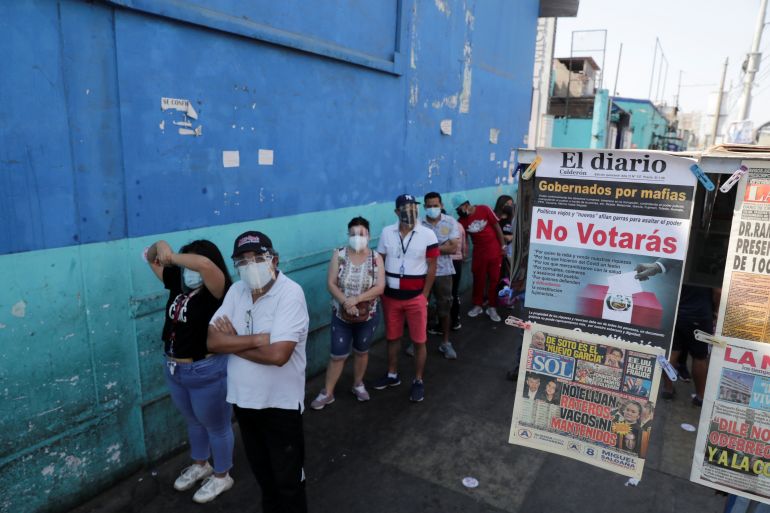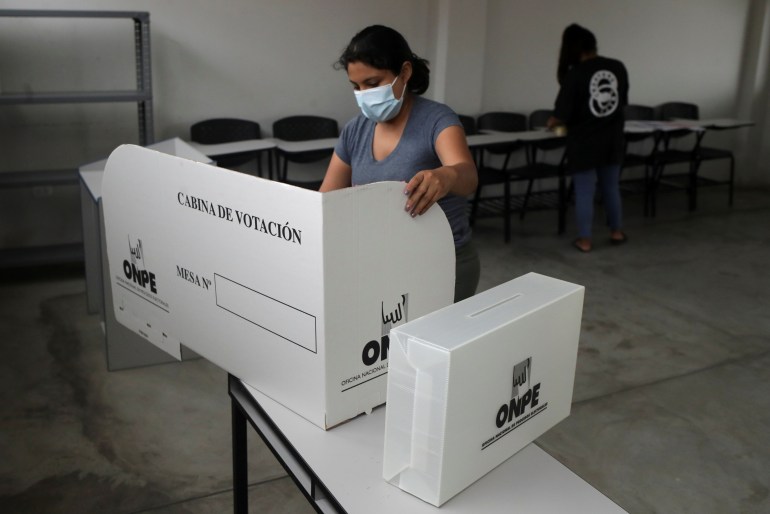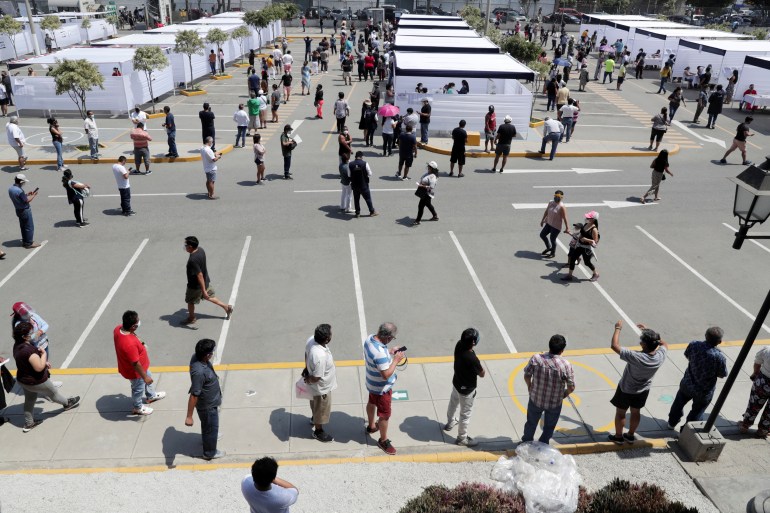Peru votes in ‘most fragmented elections in history’
Peruvians, hard hit by COVID pandemic and political scandals, will cast ballots on Sunday for next president and Congress.

Polls have opened in Peru, where politically weary voters will cast their ballots for the country’s next president and Congress amid a surge in coronavirus infections.
Many Peruvians have voiced their dissatisfaction with the crowded field of presidential candidates, none of which are expected to exceed the vote threshold needed to avoid a June runoff.
Keep reading
list of 3 itemsPeru’s ex-president sought COVID jab out of turn, doctor says
Peru reports new COVID deaths record ahead of elections
Heading into Sunday’s vote – which is mandatory with a fine of up to $25 – no candidate was polling with more than 13 percent support. A “no vote” remained the most popular single choice.
“These are the most fragmented elections in history, we have never reached the eve of the election with so many candidates in with a chance,” Alfredo Torres, head of local pollster Ipsos Peru, told reporters on Thursday.
The elections come as Peru, like several other countries in the Americas, struggles to respond to a surging COVID-19 pandemic and related economic downturn.
Peru has also been hit by years of political scandals, which have fuelled public frustrations.

“I don’t want to vote for any of them,” Fernanda Garcia, a 28-year-old secretary in Lima, told Al Jazeera this week about the 18 presidential candidates.
“They promise you whatever you want to hear when it’s an election, and then when they take office, they don’t do anything to help ordinary people. Why should that change just because we’re in a pandemic?” Garcia said.
Carlos Checa, a voter in Lima, told Reuters TV on Sunday that he had done his homework in the hope of picking a better candidate that past presidents.
“We have been wrong so many times,” he said. “Hopefully this time everyone has thought carefully about their vote, and has informed themselves properly.”
Keiko Fujimori, the daughter of ex-president Alberto Fujimori who is serving a 25-year jail term for human rights violations, holds a slim lead ahead of the rest of the candidates.
Close behind are earlier frontrunner Yonhy Lescano, left-wing professor Pedro Castillo, free marketeer Hernando de Soto, socialist Veronika Mendoza and ultraconservative businessman Rafael Lopez Aliaga.
“We are facing a voter who is very unhappy with all the options they have to choose from,” said Urpi Torrado, executive president of pollster Datum International.
The country’s 25 million registered voters will also elect 130 members of the unicameral Congress.
The polls open at 7am local time (12:00 GMT) on Sunday and pollster Ipsos Peru will provide an exit poll 12 hours later.
On Saturday, workers began sanitising over 11,000 polling stations across the country, more than three time the usual number in an effort to prevent overcrowding during the pandemic.
Voters were also assigned time slots to ensure physical distancing measures could be respected.
Interior Minister Jose Elice said about 20,000 police would be deployed to ensure voters complied with the coronavirus curbs.
Peru’s interim president Francisco Sagasti, voting early in the capital Lima, called on Peruvians to turn out despite the pandemic.
“All possible measures have been taken to avoid contagions, there should be no fear of complying with your civic duty,” he said.
